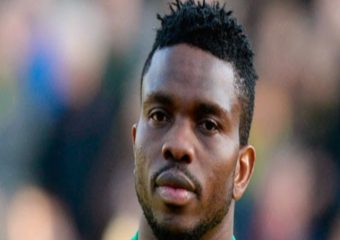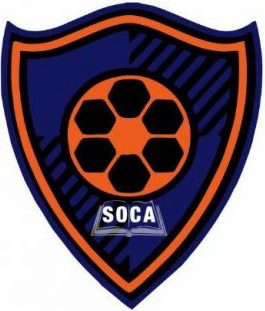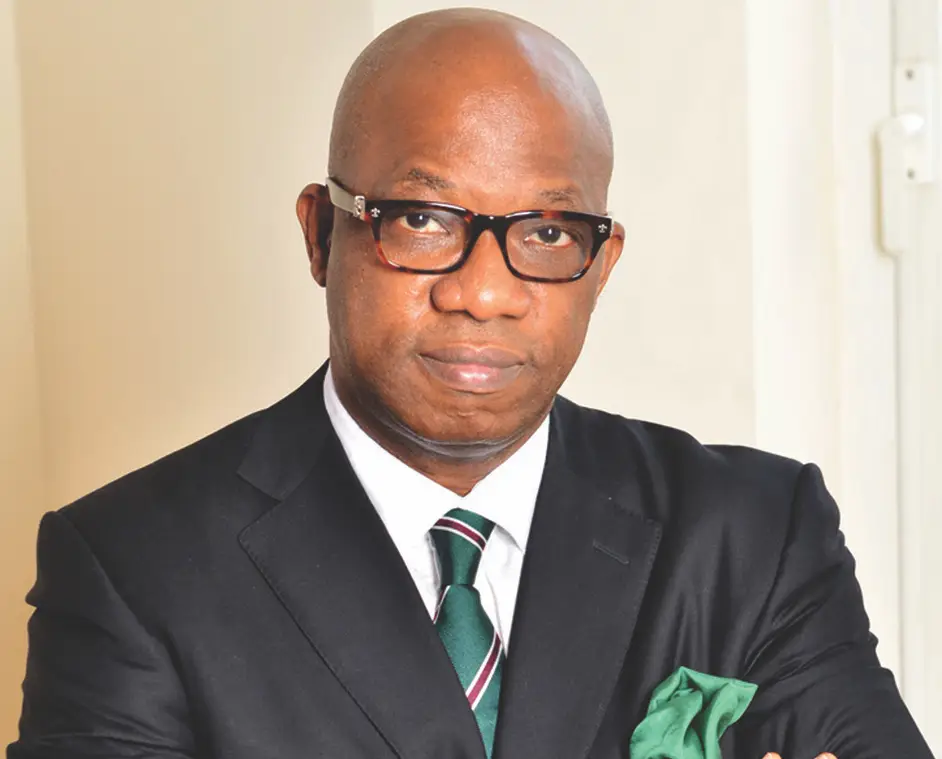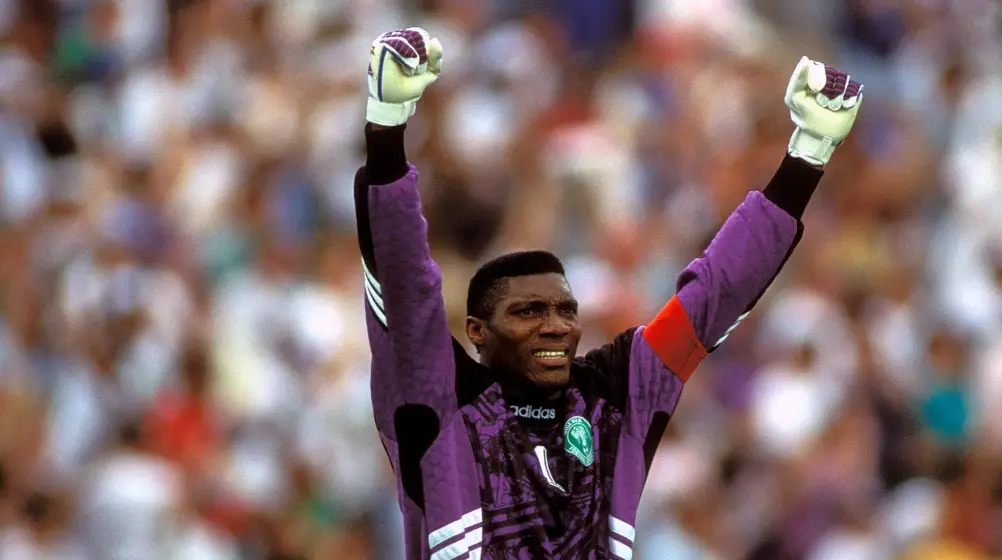I am stirring the hornets nest again. The present times actually demand such ‘madness’. I can almost hear many Nigerians, particularly those that cannot shake off the idea of a White coach being superior to anything a Black coach can offer, scream loudly that Segun has started again o!
Yes, I have started again, but permit me to remind everyone the source of my authority to stir things up.
In 1994, shortly after the USA World Cup, I initiated a campaign in my newspaper column to stop the hiring of foreign coaches for Nigeria’s national teams, including the Super Eagles. I believed that with the 1994 World Cup experience, Nigeria had finally laid down a firm foundation upon which a new generation of Nigerian coaches can be built. I stated at the time that, starting with the Keshi-generation of ex-internationals turning coaches, Nigeria should have no further business hiring unknown foreigners to handle the Super Eagles again. One of those that saw what I saw, and shared my vision was Onochie Anibeze, the. sports editor of the Vanguard newspapers. Between us, and without consulting each other, but thinking purely from our mutual appreciation of the breakthrough achieved by the large entry of Nigerian players into the professional ranks of European football at the time (facilitated by Westerhof), and with many of them going all the way to experience playing in the World Cup, Nigeria had a pool of players with the capacity to become very successful national team coaches. We even listed a few that we felt had the best qualifications. We were absolutely spot on. From that list Stephen Keshi was identified as Clemens Westeros’s natural successor even by the Dutch coach himself. ‘The Big Boss’ was a born leader. He carried this on to coaching after understudying Westerhof, getting licensed and climbing his way to become the most successful (Nigerian) coach ever. Westerhof knew that when the chips are down a European will never love another man’s country enough to lay down his life. Meanwhile, such commitment is what is needed at the theatre of the most difficult competitions in football. Onochie and I also identified in Samson Siasia, despite his Warri Boy attitude as a player, as having the streetwiseness and spirit, that can handle Nigerian players. We were right. He secured the necessary qualifications and became the most celebrated coach by the international community in Nigeria’s history. All of that was great until that generation became infected, as most of us are in the country in all spheres, by the compromiser ‘virus’ that turns good people to bad because, as John Mastoroudes derogatorily used to put it, ‘every Nigerian has a price’. There were a few others too that I thought ought to go into coaching in order to build up the stock of qualified and experienced Nigerian players ready to step in and to take charge of Nigerian football at all levels – Daniel Amokachi, Ike Sorunmu, Emeka Ezeugo, Emmanuel Amuneke, Finidi George, Sunday Oliseh and so on. Unfortunately, as they all did to achieve such a major paradigm shift was not going to be easy. To replace White coaches required the patience of a vulture that the fanatical Nigerian football fan did not have. So, as we speak, almost that entire generation of coaches are stuck in limbo, not fully embraced at home, and completely discriminated against overseas.
Administrators did not appreciate the consequences of halting the progression of developing Nigerian coaches by sticking with them through thick and thin, instead, they chose the easier route, and returned to our ‘vomit’ – the era of foreign coaches once again, back to slavery. Europe will surely never take Nigerian coaches into the big clubs or national teams, even in a million years. But the worst aspect is the failure of Nigerian clubs and administrators to understand that initial ‘failures’ of their own coaches as useful lessons and tools along the journey to eventual success. Indigenous coaches have remained in a vortex, going round and round in circles, not achieving anything. Had Nigeria followed the trajectory of developing local coaches from our international pool of players after Stephen Keshi’s era, by now, no one will be engaged in the present debate about which coach should handle the Super Eagles for the 2022 World Cup, our next critical project. The cost of hiring one foreign coach can be spread across a whole planet of Nigerian coaches who could build a solid football environment and economy in the country.
So, it does not make sense to me, sentiments apart, to continue to tow the old, tested and failed route. If we must have a foreign coach it must be from amongst the best there is. If not, if the choice is to be a Nigerian, as some of us advocate, we must not expect a quick fix or a sprint situation. It must be a mini-marathon race, on a long, lonely but guided route. Nigerians must make up their minds to sink or swim with Nigerian ex-international players-turned-coaches, whilst giving them every best training and opportunity in the world to get the experience and knowledge to take Nigerian football to the zenith! If we do not do that, we shall remain forever in the state of thinking we are never good enough! So, on that premise, yes, Segun has come again o!
Nigeria now has a second chance and a second generation of retired players with the football experience, knowledge and correct psychology (because they are Nigerians and are familiar with our players’ habits and idiosyncrasies) to be able to handle the national teams of Nigeria. That’s why, without closing the chapter on the Keshi-generation, Nigeria must start again to look at the second generation. They are even slightly more equipped than the Keshi-generation with their deeper grounding in European football. That’s why also, If I were to be in charge of Nigerian football, I will spend the next two years preparing a new leader out of the next generation of Nigerian coaches that will effectively take over all the national teams of Nigeria. We tried it with Samson Siasia and Stephen Keshi and Austin Eguavoen Ike Sorounmu, Daniel Amokachi, and so on, and it worked up to a point and for a while, until the Nigerian factor reared its ugly head and Nigerians lost their patience. This time, we won’t let it happen. Through a deliberate process of training and exposure to the best practices and personnel in the world, we would create new Guardiolas, Zidanes, Klopps, Enriques, all relatively young, retired ex-footballers that joined coaching ranks without having to waste years in the ‘classrooms’ but molded on the fields, to become the greatest coaches in the world today.
I have a person in mind. It is an informed position. The excitement for me is that I do not even know if the great Nigerian football hero is interested in coaching, or if he has acquired a coaching license, or if he would even give up his present life for one of uncertainty and criticism that coaching attracts. He will be making a great sacrifice if he takes up the offer. I will be prepared to sink or swim with him. He is very humble, a great leader of the national team players during his time, the player with the most caps for Nigeria in history, a mature, cool, well-read, very articulate and experienced ex-international football player, captain, very knowledgeable and probably the best football analyst I have seen of all Nigerian footballers. Add to all the above, proper understudy of great coaches, the best professional training available anywhere, and a guarantee that the country will sink or swim with him, and I shall present to you, Joseph Yobo, the next coach of the Super Eagles in two years’ time!









I concur with the idea of looking inward to encouraging our own ex- international take up the caring for our national team, the Super Eagle, as managers & coaches. It will be encouraging ,appreciative & human resources building.
Charity begins at home, must always bear in mind
Interesting argument. But may I add to it. Not only should Yobo be considered, but look at the class of 2013. Identify players with leadership credentials on the pitch, and character off it. Invest in them. Train them for coaching as they are nearing the end of their playing careers.
As they approach the end on the pitch they begin to develop abilities and have a long future. For example, Vincent Enyeama. Let him start as a goalkeeping coach with a view to becoming national team coach in the future.